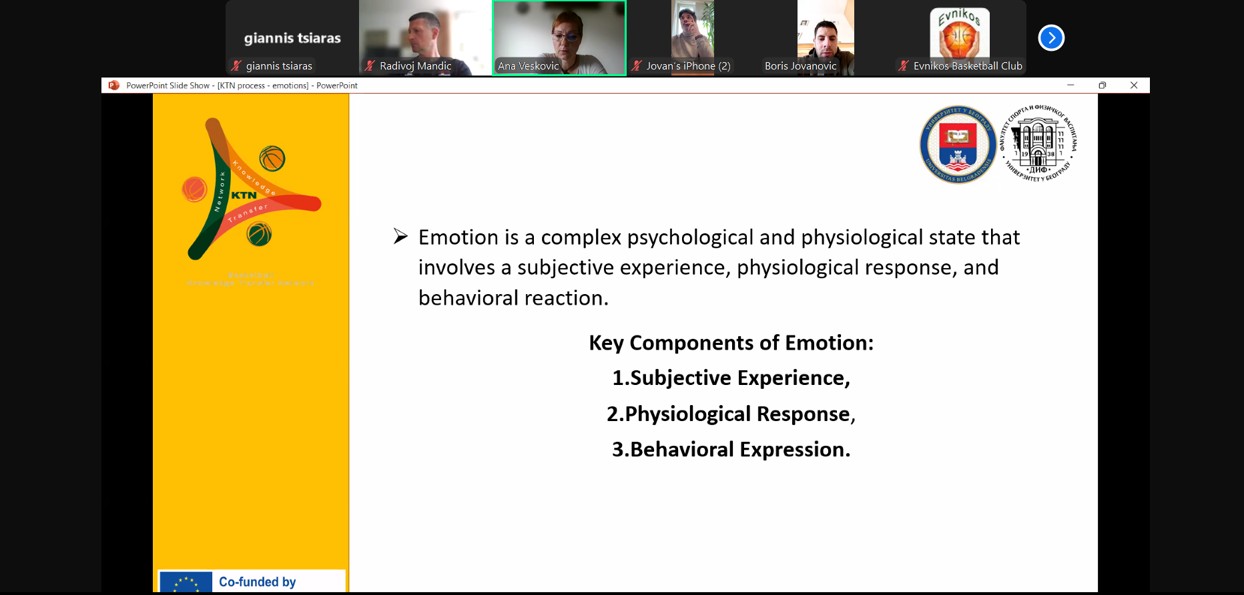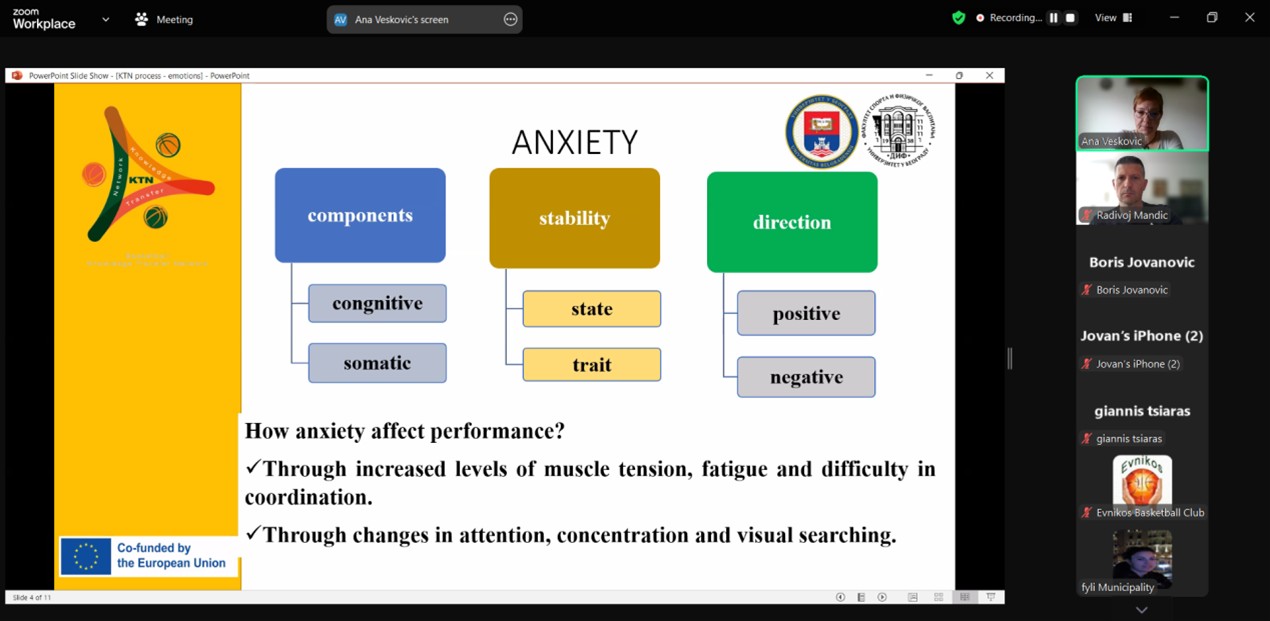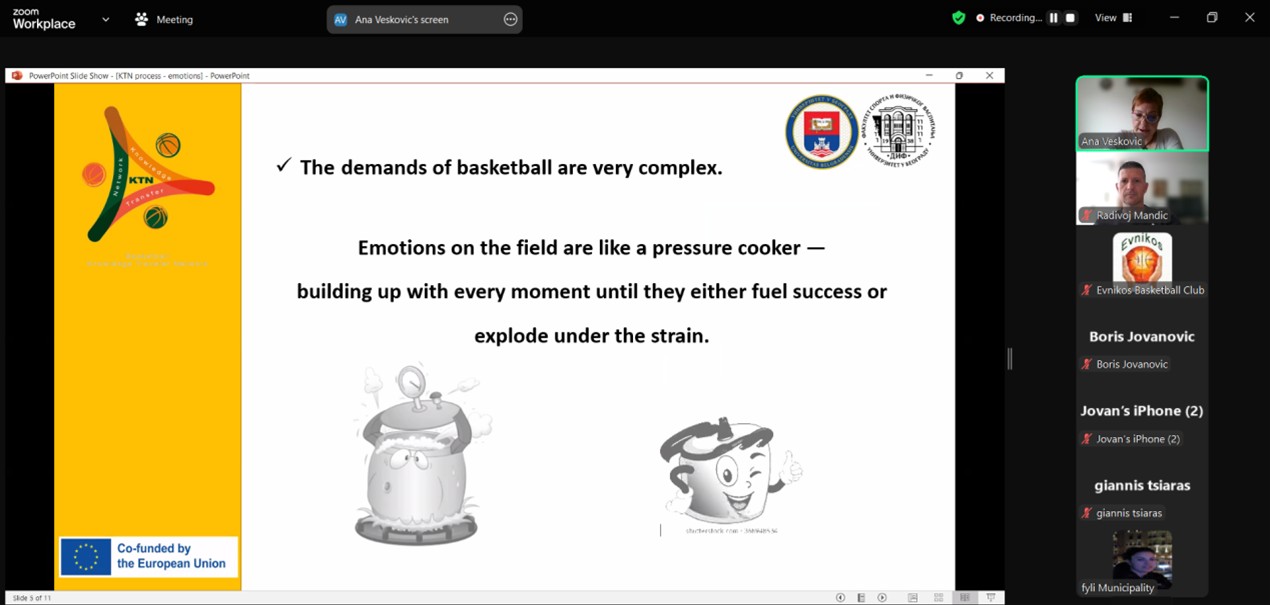Emotional Regulation in Basketball
As part of the knowledge transfer activities among the partners of the Basketball-KTN project, the University of Belgrade held a specialized training session on April 10, 2025, focusing on one of the most critical psychological dimensions of athletic performance — emotional regulation. The session explored how managing emotions effectively can transform the way athletes think, react, and perform on the court.
Emotional regulation, as highlighted during the session, is not simply about suppressing feelings but about understanding and guiding them. Emotions directly affect focus, motivation, decision-making, and resilience — all key elements of success in basketball. Functional emotions such as confidence, determination, and excitement can sharpen attention and boost energy, while less functional emotions like anxiety or frustration can interfere with concentration and execution. However, as the speakers emphasized, even these emotions are not inherently negative; when recognized and managed correctly, they can serve as powerful signals for adjustment and growth.
Participants discussed how athletes can learn to identify emotional states and use them to their advantage through practical techniques such as controlled breathing, positive self-talk, and visualization. These methods not only reduce performance anxiety but also help players recover composure in high-pressure moments. The session further underlined the importance of self-awareness and emotional resilience, skills that allow athletes to respond rather than react — maintaining clarity, teamwork, and mental balance even under intense competition.
Coaches were encouraged to take an active role in developing these abilities within their teams. Through structured training sessions, reflective exercises, and ongoing emotional support, coaches can help athletes understand the link between feeling and performance. Building a culture that values emotional education fosters trust, confidence, and collective focus, turning the team’s emotional energy into a competitive advantage.
The University of Belgrade’s training concluded with a shared understanding that emotions, when properly guided, are not obstacles but essential components of performance excellence. Emotional intelligence, therefore, becomes a core athletic skill — one that enables players to adapt, persevere, and grow both as athletes and as individuals.
Through initiatives like this, the University of Belgrade and the Basketball-KTN network continue to strengthen the bridge between sports science and practical coaching — promoting a holistic vision of basketball where emotional strength stands alongside physical skill as the true foundation of success.


